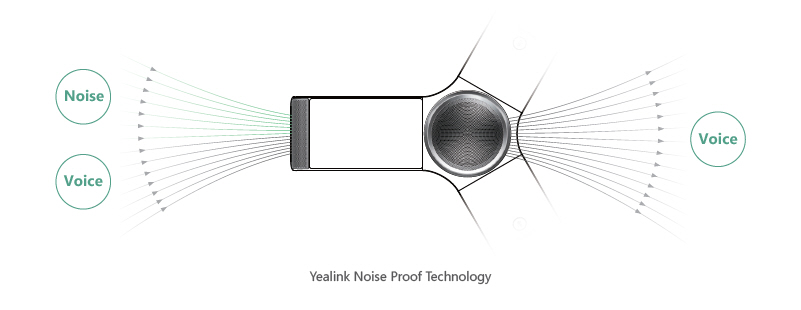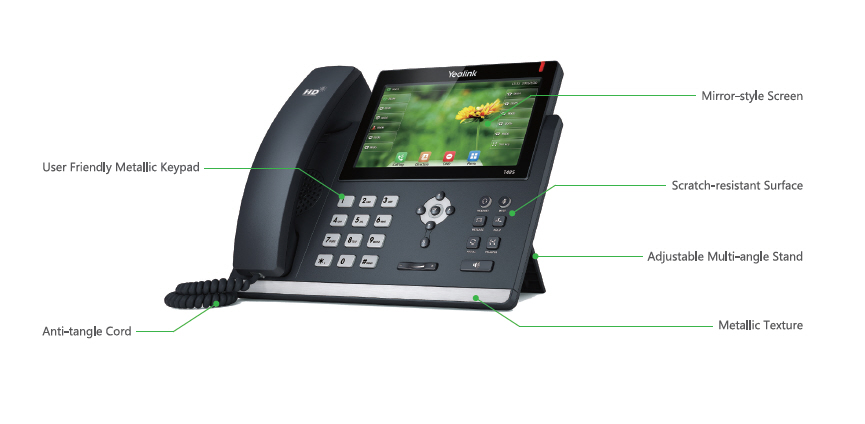Introduction
In today's fast-paced business landscape, effective communication is more important than ever. With the rise of remote work and global collaboration, having a reliable business phone system can make or break your company’s success. But with countless options available, how do you choose the best business phone system that fits your needs? In this comprehensive guide, we’ll explore key features Business Phone System to consider, potential pitfalls, and tips for making an informed decision.
What is a Business Phone System?
A business phone system refers to a telecommunications solution designed specifically for organizations. It allows employees to communicate internally and externally using various methods such as voice calls, video conferencing, and instant messaging. The right system can enhance productivity, improve customer service, and ultimately drive growth.
Why Invest in a Quality Business Phone System?
Investing in a high-quality business phone system is crucial for several reasons:
Improved Communication: Facilitates seamless communication among team members and clients. Enhanced Productivity: Offers features like call forwarding and voicemail-to-email that streamline workflows. Cost Efficiency: Reduces operational costs through VoIP technology. Scalability: Grows alongside your business without needing major overhauls.How to Choose the Best Business Phone System: Key Features to Consider
When selecting a business phone system, there are numerous factors to keep in mind. Here’s a breakdown of the essential features you should consider:
1. VoIP vs. Traditional Systems
VoIP (Voice over Internet Protocol) allows users to make calls using the internet rather than traditional phone lines. While traditional systems rely on hardware that can be costly and cumbersome, VoIP offers flexibility and often lower costs.
Pros of VoIP:
- Cost-effective Scalable Flexible Advanced features
Cons of VoIP:
- Dependence on internet quality Potential security risks
2. Scalability
As your business grows, so too will your communication needs. Choose a system that can easily scale up or down depending on your requirements without incurring hefty costs.
3. User-Friendly Interface
A complicated interface can lead to frustration among employees. Look for systems that are intuitive and easy to use, enabling staff members to quickly adapt.
4. Integration with Other Tools
Your phone system should integrate seamlessly with other tools you use daily—like CRM software or project management platforms—to create a more streamlined workflow.
5. Mobile Capabilities
In an age where remote work is becoming more common, having mobile capabilities is essential for staying connected when you're not in the office.
Feature Breakdown: Key Functionalities of Business Phone Systems
Choosing the right business phone system depends heavily on its functionalities:

6. Call Management Features
These include call forwarding, call waiting, call recording, and conference calling capabilities—essential for maintaining communication flow within teams.
7. Voicemail Options
Consider whether you want voicemail-to-email functions or customizable greetings which reflect your brand's voice.
8. Customer Support Services
Reliable customer support is invaluable when technical issues arise; ensure the provider offers 24/7 support through various channels.
9. Security Measures
Security is paramount—look for systems that offer encryption protocols and data protection measures.
Comparing Different Types of Business Phone Systems
There are several types of business phone systems available:

10. Hosted PBX Systems
Hosted Private Branch Exchange (PBX) systems are managed offsite by service providers; offering flexibility without the need for heavy hardware investments.

Advantages:
- Lower upfront costs Minimal maintenance required
Disadvantages:
- Less control over infrastructure
11. On-Premises PBX Systems
On-premises systems require significant upfront investment but offer complete control over hardware and software configurations.
Advantages:
- Greater customization Increased security control
Disadvantages:
- Higher maintenance costs
Evaluating Costs: What Will It Cost You?
When budgeting for a new business phone system, consider both initial setup costs and ongoing monthly fees:
| Feature | Hosted PBX | On-Premises PBX | |---------|------------|------------------| | Initial Setup Cost | Low | High | | Monthly Fees | Subscription-based | Maintenance & operation | | Scalability Costs | Flexible | Often substantial |
Remember to factor in any additional expenses such as integrations or specialized training for your staff.
User Experience Matters: Employee Feedback
Before finalizing your choice of a business phone system, gather feedback from employees who will be using it day-to-day; their insights can be invaluable in identifying potential issues or benefits you might have overlooked.
FAQ Section
12. What should I look for in a business phone system?
Look for scalability options, user-friendly interfaces, integration capabilities with other tools, mobile accessibility, security measures, and robust customer support services.
13. Is VoIP better than traditional phones?
Generally speaking, yes! VoIP tends to be more cost-effective and flexible compared to traditional systems while offering advanced features that enhance communication efficiency.
14. How much does a business phone system cost?
Costs vary widely depending on functionality but expect anywhere from $20-$100 per user per month for hosted solutions; on-premises solutions might require higher initial investments but could save money long-term if scaled correctly.
15. Can I keep my existing number?
Most providers allow customers to port their existing numbers during setup; just check with them beforehand!
16. How secure are cloud-based systems?
Cloud-based systems typically rely on encryption protocols and data protection measures but always verify what security practices each provider has in place before making decisions.
17. What happens if the internet goes down?
Most modern VoIP systems have backup measures like failover options; however, it’s wise also to have contingency plans such as mobile backup lines ready just in case!
Conclusion
Choosing the right business phone system involves careful consideration of various factors like functionality, cost-effectiveness, scalability options—and ultimately how well it serves your company's unique communication needs! By understanding these key features outlined above—and keeping employee feedback at the forefront—you'll set yourself up for success in creating an efficient communication framework tailored specifically toward enhancing productivity within your organization!
Invest wisely because great communication leads directly into building strong relationships—both internally among teams as well as externally with clients!